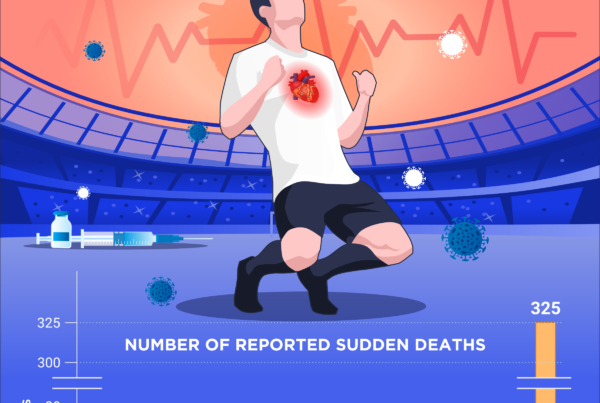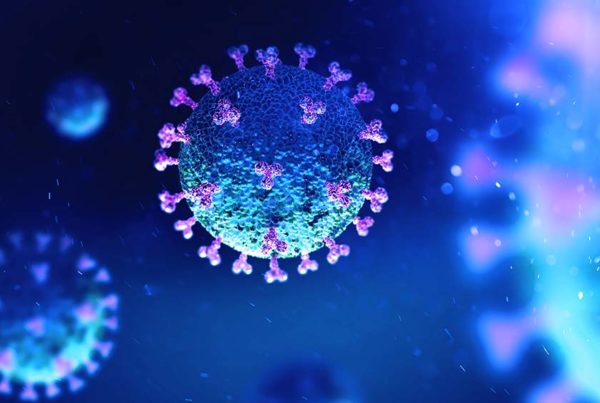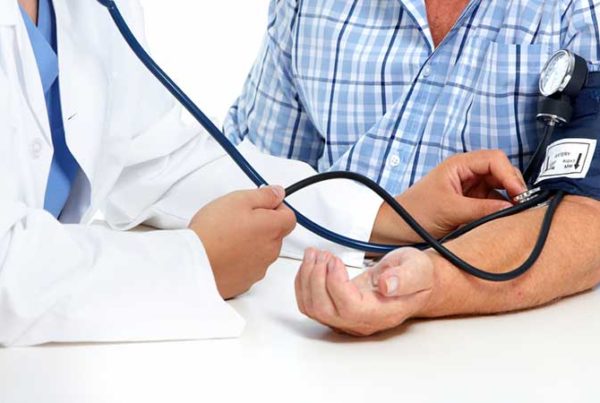
Perhaps we should wear masks to keep from eating junk
The COVID-19 experience has almost felt like an sci-fi movie. Too many people wait helplessly wondering what will happen next as society seemingly comes unraveled.
In reality as the COVID-19 pandemic runs its course, another one is raging and is helping fuel infections, severity and mortality. The goal of my series of COVID-19 articles is education, and to help people accomplish better health and ignore the ongoing politicizing, commercial and emotional factors, while self-managing and personalizing the process — this emphasizes building better immunity.
COVID-19 is clearly a real earthly problem, but for most people it is not life-threatening. Except for the relatively few who are highly vulnerable, exposure to COVID-19 typically results in either no symptoms or a mild case similar to a cold or seasonal flu. Like past pandemics, and the seasonal flu, COVID-19 exposure results in a very small number of symptomatic people, with a very small fraction of those becoming seriously ill with an even smaller number who die, typically from pneumonia.
While most serious illnesses and deaths are in higher age groups, it is not the age that causes vulnerability, but moreover excess body fat, and its downstream effects such as chronic inflammation and diseases that accompany it.
While some people practice healthy lifestyles to maintain good immunity that can help prevent infections, not enough people do, leading to higher rates of infection. Will sufficient numbers of the population become more proactive after the COVID-19 experience to help prevent the next pandemic?
This proactive approach means as a global community we address the primary causes that impair immunity to allow infection rates to reach pandemic levels — to a great extent, we know what to do. This is where real assistance by governments in the form of education to better promote health is best directed.
Was it really COVID?
Is COVID-19 the cause of death in as many cases as is reported? Or is this infection too often or arbitrarily given as a true cause of death? There are certainly scientists and clinicians who question this issue. Especially when a patient is seriously ill with pre-existing diseases threatening their life — then at the end they acquire a COVID-19 infection.
In short, poor health impairs immunity which increases vulnerability to infections. A healthy immune system, however, reduces risk, which may be due to the natural protection healthy bodies have against infections.
While tobacco use and excess alcohol intake impair immunity and overall health, food plays the most important, primary role, even more than physical activity. Consuming sugar and other junk food may be the No. 1 factor in the propagation of this virus as well as most other infections.
However, public protocols during the COVID-19 pandemic have not addressed healthy lifestyle, but instead appear meant for the relatively few who are very ill, or at least, seem more appropriate for grave infectious conditions like Ebola. Promoting a healthy lifestyle to the vast majority of the world to help reduce excess body fat and improve the immune system is a logical recommendation mostly ignored despite the long-known significant scientific value.
A sugar-coated pandemic
Serious side-effects of COVID-19 include economic, social and civil upheaval, and personal physical and mental health devastation. Examples of this collateral damage include increased civil unrest and suicide, loss of property and work, increased domestic violence and teen pregnancies, and reduced access to healthcare and child care and education.
Instead of wrecking the global economy, perhaps we should quarantine sugar and other refined carbohydrates — social distance from sugar — even wear a tight face mask when within 20 meters of sugar. Seriously, simple health habits can immediately improve immunity and begin the process to prevent future pandemics (not to mention significantly improve overall health and quality of life, and the economic burden of healthcare very quickly.
Wither science?
Are there really any COVID-19 experts? There may not be yet. A newly published COVID-19 paper (Kostoff R, et al. 2020) concludes that, “The underlying causes of the present pandemic have been both misrepresented and camouflaged.”
Clearly there are many more questions than answers, and we know much less about COVID-19 compared to other infectious agents, some of which have also caused pandemics.
The scientific community is gathering large amounts of data as I write this. It will take time to sort out for accuracy and crunch so we understand much more than we did at the pandemic’s onset — and even to date. What will this demonstrate? We will probably find all the numbers need adjusting, perhaps significantly, and that COVID-19 behaves more like other viruses such the annual flu than not. Perhaps COVID-19 will be bundled with the many viruses known as the seasonal flu (like was done with SARS).
My hope is that this knowledge will help the world make a concerted effort to help people improve immunity and overall health to be proactive. Let’s face it, as simple and inexpensive as these remedies are, the lifestyle influences that can significantly affect COVID-19 infections are mostly ignored by public health and politicians.
Luckily some of us have bypassed the hype to see more clearly and focus on a healthy lifestyle.
Related links
Six more ways to protect yourself from infection
Using Nature to battle viral and other infections
Special Report: COVID recovery
Herd immunity: Mother Nature’s vaccine
Underestimated overfat pandemic may be fueling coronavirus
Other references
Hyman P. The Disappearance of the Primary Care Physical Examination—Losing Touch. JAMA Intern Med. 2020. doi:10.1001/jamainternmed.2020.3546.
Kostoff, RN, et al. The Under-Reported Role of Toxic Substance Exposures in the COVID-19 Pandemic. Food and Chemical Toxicology. 2020; 145. https://doi.org/10.1016/j.fct.2020.111687.
Maffetone P, Laursen P. The Perfect Storm: Coronavirus (Covid-19) Pandemic Meets Overfat Pandemic. Front. Public Health. 2020. doi.org/10.3389/fpubh.2020.00135.
NPR/Robert Wood Johnson Foundation/Harvard School of Public Health poll. September 2020. https://media.npr.org/assets/img/2020/09/08/cities-report-090920-final.pdf
Sette A, Crotty S. Pre-existing immunity to SARS-CoV-2: the knowns and unknowns. Nat Rev Immunol. 2020; 20. doi.org/10.1038/s41577-020-0389-z.








